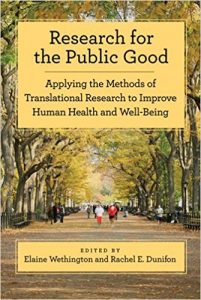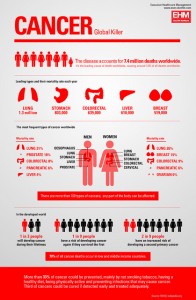Below is one of Psychology Today's top blog posts of 2020 by Karl Pillemer, Hazel E. Reed Professor in the Department of Human Development, Professor of Gerontology in Medicine at Weill Cornell Medicine and author of Fault Lines: Fractured Families and How to Mend Them.

In the very dark cloud of the coronavirus pandemic, it is hard to find a silver lining. One positive glimmer, however, has recently come to my attention.
Over the past five years, I have conducted a series of studies to shed light on the problem of estrangement in families, focusing in particular on the experience of people who have reconciled successfully. Friends and colleagues who know of my interests have contacted me with interesting news: They reconciled because of the crisis.
For these individuals, the pandemic brought about renewed contact with a relative after years, and sometimes decades, of estrangement.
I heard from a daughter whose rift was caused by bitter arguments over the Trump presidency. She was the lone progressive in a family of Trump supporters. Even if she tried to avoid political debates, her family provoked her until she took the bait. Unable to avoid arguments with her father in particular, she cut him off and stopped visiting. “We had a pretty good relationship until 2016,” she told me.
Her concern about her parents prodded her to reach out when the crisis began: “I called them and told them I was worried about them. We had the first good talk in a couple of years. I just said to my dad: ‘Let’s help each other now. How about if we stop talking about abortion or immigration?’ To my surprise, he agreed.”
Siblings, too, have been pulled back into family networks. I learned of a brother who was cut off by the family after traumatic events two decades ago. He was included on the family email round-robin about coping with the pandemic and, to everyone’s surprise, joined in. Similarly, two sisters who had grown apart since leaving the parental home called one another and compared their experiences—and made plans to get together.
I was not surprised, having surveyed more than 1,700 people about their experiences of estrangement and reconciliation (the findings will appear in a forthcoming book). I learned that one of the major reasons for bridging a family rift was a nagging sense of anticipated regret.
Usually, we think of regret as believing that our current situation would have been better if only we had made a different decision. Research shows, however, that anticipating regret can be a powerful motivation for action. When people are faced with difficult decisions, a critical factor for many is the regret they think they may feel in the future for an action taken or not taken now.
There’s another factor that promotes the urge to reconcile during this crisis. The extensive research on the concept of “socioemotional selectivity” suggests that when people perceive the time horizon as short, they place a higher value on interpersonal relationships, including those with family members.
This pattern is precisely what I found in my research on people who reconciled. Many were prompted by a revelation that “life is short.” Often, they could point to a particular moment when that sentiment hit home. A common impetus was a serious health problem—their own or their relative’s. When illness struck, they realized it would soon be forever too late to apologize, to forgive, to pick up the phone, or to send the conciliatory letter that’s been sitting on the hard-drive for years. They reached out, and many times they bridged the rift.
Therefore, a powerful motivation for taking the first, tentative step is a small, recurring voice murmuring, “Will I be consumed with regret if I wait until it’s too late to reconcile?” Based on the admittedly small sample from my own social network, precisely this motivation is activating family members to ask: “Are the old grievances and grudges really worth it? If I don’t reach out now, will COVID-19 make it too late?”
A psalm has this famous request: “Teach us to number our days, that we may gain a heart of wisdom.” An unexpected result of the pandemic can be families coming together who have suffered through painful rifts. My reconciled respondents would endorse taking advantage of such a golden opportunity to heal a fractured family.









 Three of
Three of 




